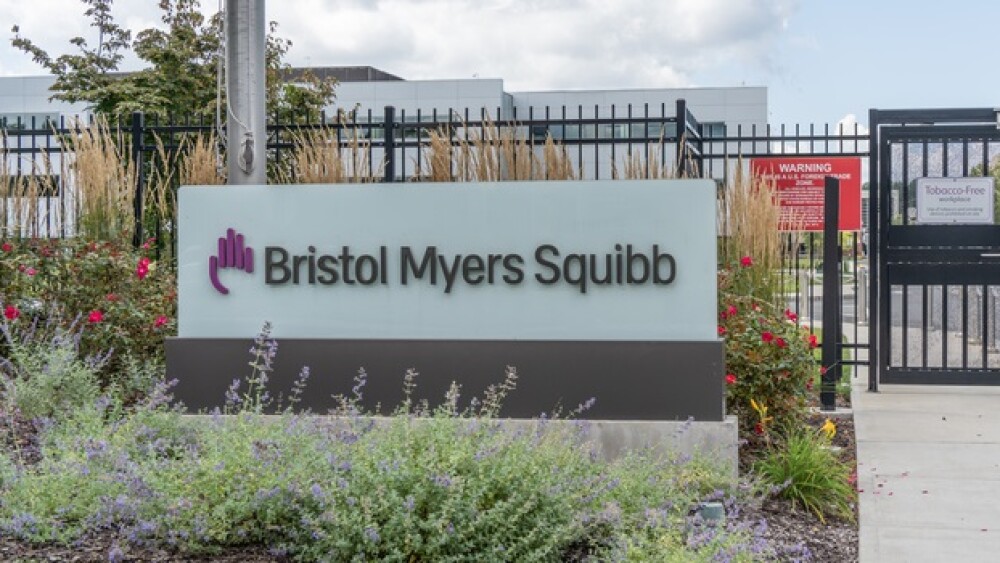The regulator has decided to hold an advisory committee meeting regarding BMS and 2seventy bio’s bid to move the CAR-T cell therapy into earlier lines of treatment, missing its previous target action date of Dec. 16.
Pictured: Signage outside BMS’s site in New Jersey/iStock, arlutz73
Bristol Myers Squibb and partner 2seventy bio announced Monday that the FDA has decided to convene its Oncologic Drugs Advisory Committee to discuss the companies’ proposed use of Abecma (idecabtagene vicleucel) in earlier lines of treatment for triple-class exposed relapsed or refractory multiple myeloma.
The advisory committee meeting has no scheduled date yet. However, it will mean that the FDA will miss its previously announced target action date of Dec. 16, 2023.
The regulator approved Abecma in March 2021, making it the first cell-based gene therapy for the treatment of adults with multiple myeloma. Its current label, however, only allows Abecma to be given to patients who had already been treated with at least four lines of prior therapies, including a proteasome inhibitor, an anti-CD38 monoclonal antibody and an immunomodulatory agen
In a supplemental Biologics License Application, which the FDA accepted in April 2023, BMS and 2seventy bio to push Abecma into earlier lines of treatment for patients with relapsed or refractory multiple myeloma who had been exposed to three prior classes of therapies.
The companies supported their filing with data from the Phase III KarMMa-3 study, which met its primary endpoint of progression-free survival (PFS). Compared with standard regimens, Abecma cut the risk of disease of progression or death by more than half.
At the time, Adam Lenkowsky, senior vice president and head of major markets at BMS, said that the data from KarMMa-3 highlight the “clear clinical benefit of Abecma over existing standard of care regimens.” If approved, Abecma could establish itself as an earlier standard in the treatment course in this indication.
However, in their announcement on Monday, the companies noted that the advisory committee is likely to focus on overall survival (OS), a key secondary outcome of KarMMa-3. BMS and 2seventy bio will present final PFS data and interim OS data at next month’s 2023 Annual Meeting and Expo of the American Society of Hematology.
Abecma is a CAR-T cell therapy that works by binding to BCMA, a cell-surface antigen that is highly expressed on cancerous plasma cells, but not on healthy cells. Activation of Abecma triggers the proliferation of T cells and the secretion of cytokines, which in turn facilitates the destruction of cancer cells.
Monday’s regulatory delay also adds to 2seventy bio’s growing troubles. In August 2023, the FDA placed a clinical hold on a Phase I study of its early-stage investigational CAR-T cell therapy SC-DARIC33 after a child who received the experimental treatment died. SC-DARIC33 is being developed for acute myeloid leukemia.
In September 2023, the biotech launched a widespread business restructuring program to streamline its operations. The initiative involved 176 layoffs across various departments, the transition of its CEO Nick Leschly into a role as board chairman and the advancement of fewer pipeline projects.
Tristan Manalac is an independent science writer based in Metro Manila, Philippines. He can be reached at tristan@tristanmanalac.com or tristan.manalac@biospace.com.






